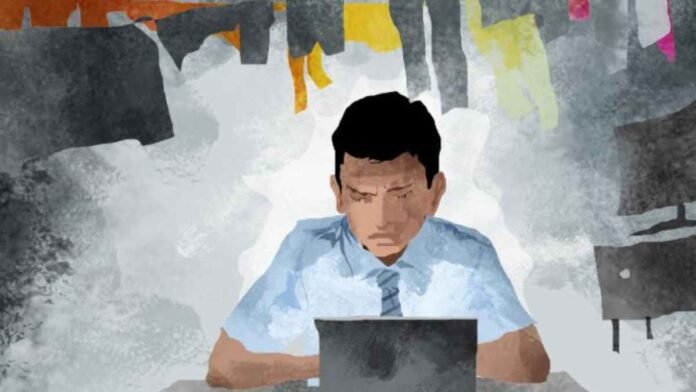When your youngster begins surfing the internet, he faces several dangers. This is a must-read for any parent whose child has gone online.
According to a new analysis, over 33% of the 424 parents who participated in a survey stated that strangers approached their children via online platforms seeking friendships, personal and family data, and sexual advice. Four hundred and twenty four (424) parents from Maharashtra, Karnataka, West Bengal, and Madhya Pradesh took part in the study.
The most prevalent behavioural changes seen by instructors among youngsters were absent-mindedness and unjustifiable absence from school. This was followed by a rise in smartphone usage at school (20.9%).
The findings revealed a significant knowledge gap and poor trust in legal and law enforcement organisations among parents.
According to a new analysis, over 33% of the 424 parents who participated in a survey stated that strangers approached their children via online platforms seeking friendships, personal and family data, and sexual advice.
Participants comprised 424 parents from Maharashtra, Karnataka, West Bengal, and Madhya Pradesh, as well as 384 teachers from the four states and 107 other stakeholders from three states (West Bengal, Madhya Pradesh and Maharashtra). According to the parents, 40% of the children who reported incidences of online solicitation and abuse were adolescent girls between the ages of 14 and 18, closely followed by adolescent boys (33%).
Responses were collected from rural regions more than urban areas for parents who reported that their children had indicated instances of online child sexual exploitation and abuse (OCSEA), with both male and female respondents accounting for such events.
The research is being carried out in collaboration with CRY (Child Rights and You) and the Chanakya National Law University in Patna. It was discovered that one-third (33.2%) of the respondents’ parents indicated that strangers approached their children via online platforms seeking friendships, personal and family data, and sexual advice about relationships.
They further claimed that inappropriate sexual information was shared with the minors and that they engaged in sexual talks online.
When asked what steps they would take if their children were subjected to OCSEA, just 30% of parents said they would go to the police station and submit a complaint, while a ‘worrying 70% disregarded the option’.
Furthermore, just 16% of parents reported being aware of any OCSEA regulation. According to the research, these findings revealed a significant knowledge gap and poor trust in legal and law enforcement organizations among parents.
The most prevalent behavioral changes seen by instructors among youngsters were absent-mindedness and unjustifiable absence from school (both 26%), followed by greater use of cellphones in school (20.9 per cent).
Soha Moitra, CRY’s director of development support and head of its regional operations in North India, emphasised the significance of re-evaluating and strengthening current legislative frameworks.
Moitra said, “This analysis discovered that the Internet is being utilised for child trafficking in India. With the increased use of the Internet in trafficking, particularly among younger children, as demonstrated by this study, the laws may need to be re-evaluated.”
For latest Bollywood Update Follow us on Instagram & Watch on Youtube




